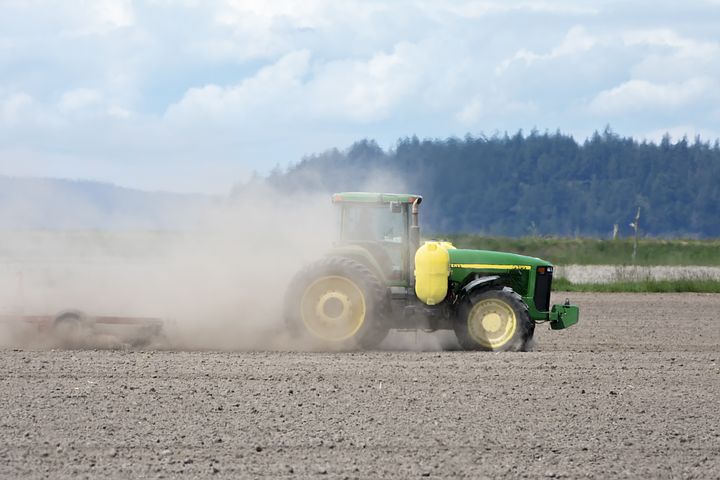
Organic agriculture could increase climate emissions without changes in population and diet
A new study shows that converting all farmland in England and Wales to organic agriculture could increase greenhouse gas emissions because meeting the food demands of the UK population would require using more land abroad.

Modern agriculture is a leading cause of biodiversity loss, pollution, and climate change emissions – a global shift towards less destructive farming practices is widely viewed as essential. Organic farming is usually environmentally friendlier than intensive agriculture because it avoids synthetic pesticides and fertilisers and preserves soil health, including its carbon storage capacity.
The study, published in Nature Communications, found that if farms in England and Wales went fully organic, they would produce fewer direct emissions than conventional methods thanks to greater carbon sequestration. However, because organic crop yields tend to be lower, more food would have to be imported, resulting in more land being used overseas.
As a relatively small country with a high population density, the UK already relies on importing approximately half of its food. The authors estimate that switching to environmentally friendlier food production without a reduction in demand would require almost five times the amount of land that is currently used.
Depending on what type of land is converted overseas, net emissions could rise by up to 56% compared to the conventional approach.
The UK population is projected to increase from 65.6 million people today to 70 million by 2031, meaning an even greater reliance on imports. The effect of population growth on food demand is a global concern – the study points out:
“The global demand for food is expected to increase by 59-98% by 2050. Given that land resources are finite, this implies more competition for land, and more-intensive food production per unit land area, whereas current organic systems are inherently less intensive.”
Further intensification is the opposite of what is needed to fight the climate crisis and halt the sixth mass extinction. As outlined recently by the EAT-Lancet Commission, only profound changes to our food systems could allow our growing population to be fed without causing devastating damage to the environment. Crucially, the report warned that if the global population exceeds 10 billion, as is projected to happen by the end of the century, this becomes “increasingly unlikely”.
This study reinforces this message by proving that current UK diets and population projections are not compatible with environmental sustainability.


